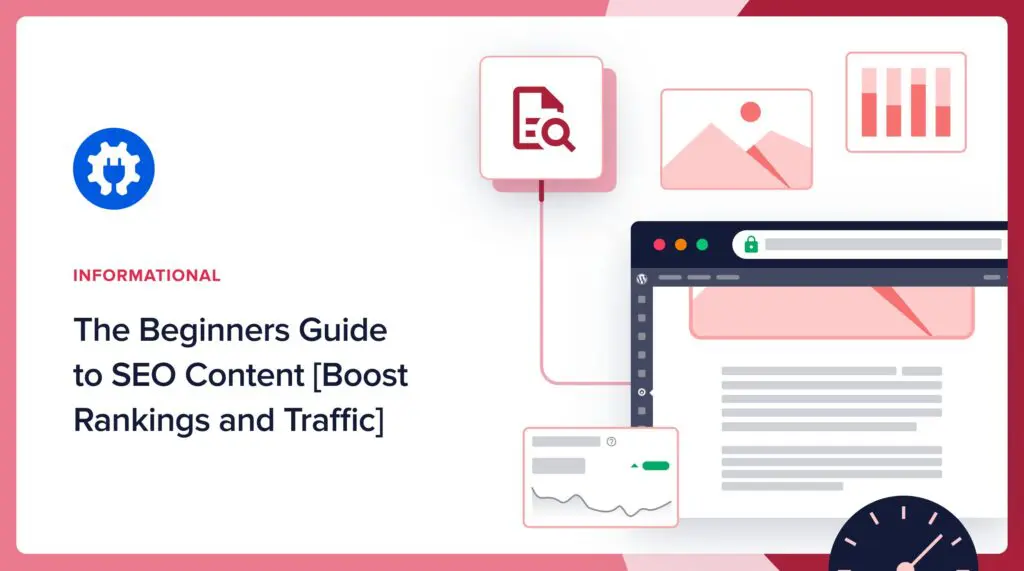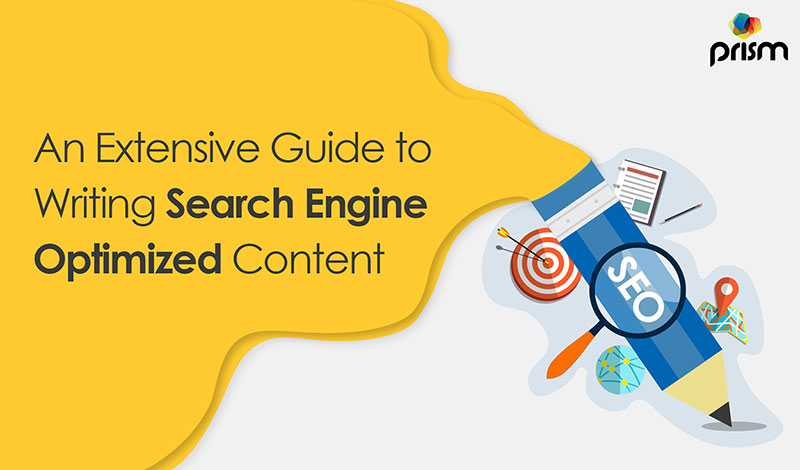Unlock the secrets of SEO content writing and learn how to create powerful texts that captivate search engines effortlessly. Read on!

Image courtesy of via DALL-E 3
Table of Contents
Introduction to SEO Content Writing
SEO, or Search Engine Optimization, is a way to make sure that your website shows up in search engines like Google when people look for something. It’s like making your site more visible in a big library so that others can easily find it.
What is SEO?
SEO is all about making your website better for search engines to understand and display. By using specific words and setting up your site in a certain way, you help search engines show your site to the right people when they search for something.
Why is SEO Important?
SEO is important because it helps your website get noticed by people who are searching for information online. When your site pops up in search results, more people can visit your page, learn from it, and maybe even share it with others.
Understanding Search Engines
When you search for something on the internet, it feels like magic when you find exactly what you’re looking for in just a few seconds. But have you ever wondered how search engines like Google actually find all that information and show it to you? Let’s take a closer look at how search engines work.
How Do Search Engines Work?
Search engines are like super-smart detectives that scour the internet for information. They use special programs called “crawlers” to visit websites and read everything they can find. These crawlers collect data about the content on websites and bring it back to the search engine’s database.
What is Crawling and Indexing?
When a crawler visits a website, it reads the text, follows links to other pages, and even looks at images and videos. This process is called “crawling.” After gathering all this information, the search engine organizes it in a huge library called an “index.” This way, when you search for something, the search engine can quickly look through its index to find the most relevant websites to show you.
The Fundamentals of Keywords
In the world of SEO content writing, keywords play a crucial role. But what exactly are keywords? Well, think of them as special words or phrases that people type into search engines like Google when they’re looking for something. These words help search engines understand what a webpage is all about.

Image courtesy of www.stanventures.com via Google Images
Why Keywords Matter?
Now, you might be wondering why keywords are so important. Let me explain. When someone searches for a specific topic online, search engines scan through all the webpages to find the most relevant ones. By using the right keywords in your content, you’re telling search engines that your page is a perfect match for what the person is looking for. This means more people will see your content, and that’s pretty awesome, right?
Crafting Engaging Content
When you write something, it’s important to think about who will read it. Your audience is the group of people who will see your work. Are they kids your age? Adults? Maybe teachers or parents? Knowing your audience helps you decide how to write your content so that it catches their interest and makes sense to them. Imagine talking to your friends versus talking to a teacher – you would use different words and examples based on who you are speaking to, right? The same idea applies to writing for different audiences.
Writing Clear and Simple Text
Writing in a way that is easy to understand is the key to keeping your readers engaged. Use simple words that everyone can understand. Long and complicated sentences can make it hard for people to follow along. So, break up your text into short paragraphs and sentences. This makes it easier for your readers to absorb the information without getting lost in a sea of words. Remember, the goal is to communicate your ideas clearly and effectively, and that’s best done with simple language and concise sentences.
Using Headers and Bullet Points
In SEO content writing, using headers and bullet points can make your text more organized and easier for readers to follow. Let’s delve into why headers and bullet points are essential for creating engaging and structured content.

Image courtesy of www.slaterockautomation.com via Google Images
Why Use Headers?
Headers are like signposts in your content, guiding readers to the main topics and subtopics. When you use headers, readers can quickly scan your text and find the information they are looking for without having to read everything.
The Power of Bullet Points
Bullet points break down information into concise, easy-to-digest chunks. They help highlight key points and make the content more scannable. By using bullet points, you can present information in a clear and organized manner, making it visually appealing to your readers.
Including Images and Videos
When creating content for your website, it’s essential to make it visually appealing and engaging. One way to achieve this is by including images and videos in your text. Let’s explore how incorporating visual content can enhance your SEO strategy.
Why Add Images?
Images are not just decorative elements; they serve a crucial purpose in enhancing the user experience and conveying information quickly. Including relevant images can help break up long blocks of text, making your content more digestible and engaging for readers. Moreover, images can help illustrate complex concepts or ideas, making it easier for your audience to understand and retain information.
Using Videos Effectively
Adding videos to your website can significantly boost user engagement and time spent on your page. Videos have the power to convey information in a dynamic and visual way, making them an excellent tool for demonstrating processes, showcasing products, or telling a story. By incorporating videos into your content, you can provide valuable insights and captivate your audience’s attention, increasing the likelihood of them staying on your site longer.
Links: Internal and External
Internal links are like pathways on a website that lead you to different rooms in a house. When you click on an internal link, you move to another page within the same website. These links help you explore more information and make it easier for search engines to understand what your website is about.

Image courtesy of aioseo.com via Google Images
What Are External Links?
External links are a bit like bridges that connect one website to another. When you click on an external link, you are taken to a different website. These links are important because they show search engines that your website is connected to other reliable sources of information. Just like in real life, having good connections is key!
Measuring Success with Analytics
When you create content for the internet, it’s essential to know if people are reading and enjoying what you’ve made. This is where analytics come in handy. Analytics tools help you track how many visitors come to your website, how long they stay, and what they do while they’re there. Let’s dive into how you can measure the success of your SEO content with analytics.
Using Analytics Tools
Analytics tools, like Google Analytics, are like your secret helpers. They give you all sorts of data about your website visitors. You can see where they come from, how they found your site, and which pages they visit the most. These tools show you the important numbers that reveal how well your content is doing.
What Metrics Tell You
Now, you might be wondering what these “metrics” are. Metrics are just fancy words for measurements or data points. Some key metrics you should pay attention to include:
Traffic: This tells you how many people are visiting your site. High traffic means lots of people are checking out your content.
Bounce Rate: This shows you how many people leave your site after only viewing one page. A high bounce rate might mean your content isn’t engaging enough.
Time on Site: This metric tells you how long visitors stay on your website. The longer they stay, the more interested they are in what you have to offer.
By keeping an eye on these metrics, you can see what’s working well and where you might need to make improvements. Analytics give you the power to understand your audience better and create even more engaging content in the future. It’s like having a magic crystal ball that shows you exactly what your readers want!
Conclusion
In conclusion, SEO content writing is a vital skill for making sure your website appears in search engine results. By understanding how search engines work, the importance of keywords, and crafting engaging content, you can increase your online visibility and attract more visitors to your site.

Image courtesy of www.prism-me.com via Google Images
Quick Recap
To sum up, SEO, or search engine optimization, is all about creating content that search engines like Google can easily find and display in search results. By using the right keywords, writing for your audience, and organizing your content effectively with headers and bullet points, you can optimize your website for better visibility.
Moving Forward
If you’re just starting out with SEO content writing, remember to focus on creating high-quality, relevant content that provides value to your readers. Utilize tools like Google Analytics to track your website’s performance and make adjustments as needed. Keep learning about SEO best practices and stay updated on the latest trends to continually improve your content and attract more visitors to your site.
Frequently Asked Questions (FAQs)
What is a Search Engine?
A search engine is like a super-smart librarian that helps you find information on the internet. When you type something into a search engine like Google, it looks through all the websites on the internet and shows you the ones that are most helpful for what you’re looking for.
How Do Keywords Help?
Keywords are like secret codes that tell the search engine what a webpage is about. When you use the right keywords in your writing, it helps the search engine understand your content better. This way, when someone searches for those keywords, they can easily find your webpage!
Why Should I Use Pictures?
Pictures are like the cherry on top of your ice cream sundae! They make your content more exciting and help explain things in a fun way. When you use pictures, it can grab people’s attention and make them want to learn more about what you’re talking about.







